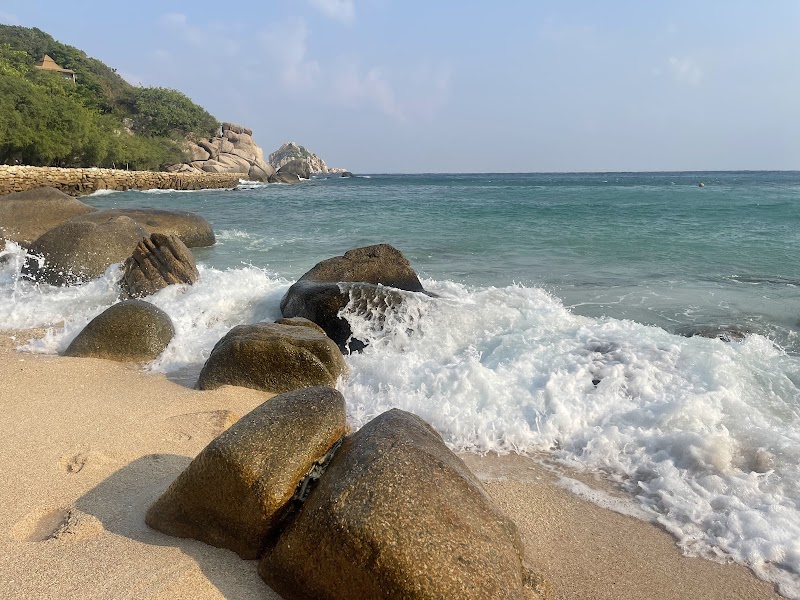
Dive Week Thailand: Explore Koh Tao’s Underwater Frontier
Dive Week Thailand on Koh Tao offers an intensive introduction to one of the world’s richest marine environments. Combining daily dive training with the island’s rugged charm, it’s an immersive experience designed for everyone from beginners to seasoned divers seeking certification.
Hydrate Thoroughly Before and After Dives
Balancing exertion underwater and tropical heat can rapidly dehydrate you. Carry a reusable water bottle and sip frequently to keep energy steady throughout the week.
Bring a Personal Mask and Snorkel
Rental gear is available but having your own fitted mask and snorkel improves comfort and efficiency during training and leisure snorkeling.
Schedule Dives in the Morning
Mornings usually bring calmer seas and optimum visibility, making it easier to spot marine life and complete skills requirements effectively.
Wear Reef-Safe Sunscreen
Protect yourself without endangering coral and marine creatures by choosing environmentally friendly sun protection products.
Dive Week Thailand: Explore Koh Tao’s Underwater Frontier
Koh Tao is a diver’s proving ground where Dive Week Thailand unfolds, offering an intensive, hands-on experience in the island’s vibrant marine playground. Located in the Gulf of Thailand, this small island packs a punch with crystal-clear waters, diverse aquatic life, and reefs that test and reward divers of all levels.
Over the course of Dive Week, participants typically complete their Open Water and Advanced certifications through a mix of classroom instruction, skills training in shallow waters, and exhilarating open-water dives. The dive sites around Koh Tao range from gentle slopes to sheer underwater walls, often teeming with life that seems to challenge you to look closer—reef sharks patrol with quiet authority, while schools of barracuda twist like ribbons in the current.
Each day presents approximately two to three dives, making it vital to manage energy and hydration—saltwater and sun rapidly sap your reserves. Dive operators are well-versed in safety protocols and briefings, emphasizing respect for the ocean as a force that demands focus and care rather than casual approach.
Beyond the dives, Koh Tao’s terrain offers easily accessible hiking trails that cut through the island’s low jungle ridges. These walks deliver panoramic views of bays where your morning dives took place, connecting the underwater adventure with the island’s rugged character. The contrast between the density of the reef and the openness of sky invites a moment of grounded reflection.
Planning wise, aim for the dry season between January and April when water clarity shines brightest and currents ease. Dive shops are abundant, but booking in advance for Dive Week packages is smart to secure spots during peak season. Equipment rentals are typical and maintained, yet bringing personal essentials such as mask and snorkel enhances comfort.
Prepare with sturdy sandals or light hiking shoes for trails and backup swimwear for layered dives. Respect the environment by avoiding sunblock with harmful chemicals and using reef-safe alternatives to protect the marine life that defines this dive haven.
Dive Week Thailand in Koh Tao packs a robust adventure into seven days, blending practical skill-building with immersion in an ecosystem fiercely itself. It’s an invitation to move deliberately between air and sea, challenge and calm, knowledge and wonder.
Nearby Trips
All Adventures
Boat Charters
Water Activities
Adventures near Koh Tao, Thailand
Discover the unique and memorable adventures that make Koh Tao, Thailand special.
Frequently Asked Questions
Do I need previous diving experience to join Dive Week?
No prior experience is necessary. Dive Week includes beginner Open Water courses as well as advanced certifications, making it accessible for first-timers and those expanding their skills alike.
What are the typical depths and conditions for the dives?
Training dives mostly occur at depths between 5 to 18 meters, with calm to moderate currents. Visibility averages 15-30 meters during dry season, allowing for safe skill practice.
Are night dives included in the program?
Some advanced Dive Week courses offer optional night dives, providing a different perspective on nocturnal marine life, but these are scheduled separately and require prior certification.
What marine creatures are commonly spotted during dives?
Expect to see reef sharks, giant moray eels, turtles, and vibrant schools of fish. The island occasionally hosts whale sharks during peak seasons, adding an unforgettable encounter.
How environmentally responsible is the diving industry here?
Many dive schools on Koh Tao actively engage in reef conservation efforts, including education on reef-safe products and participation in coral restoration projects to maintain ecosystem health.
Can Dive Week be combined with other adventures on Koh Tao?
Absolutely. The island’s trails offer opportunities for rewarding hikes with sea views, and kayaking or snorkeling excursions provide active rest days.
Recommended Gear
Personal Dive Mask
Provides clear vision underwater and a comfortable fit critical to successful dive training.
Reef-Safe Sunscreen
Protects skin while ensuring minimal environmental impact on coral reefs.
Lightweight Hiking Shoes
Useful for exploring trails on the island between dive sessions without bulk or weight.
Hydration Pack or Reusable Water Bottle
Keeps you hydrated during long days in the heat and on the boat.
Local Insights
Hidden Gems
- "John-Suwan Viewpoint: A lesser-known trail offers sweeping panoramas of Chalok Baan Kao Bay."
- "Hin Wong Bay: A quieter dive spot where you can observe macro marine life in a calm setting."
Wildlife
- "Blacktip Reef Sharks patrol the shallows with steady grace."
- "Nudibranchs and other small colorful creatures animate the coral garden walls."
History
"Koh Tao was once a small fishing island before gaining notoriety as a global dive training hotspot since the 1990s, shaping local culture and economy around marine conservation and tourism."
